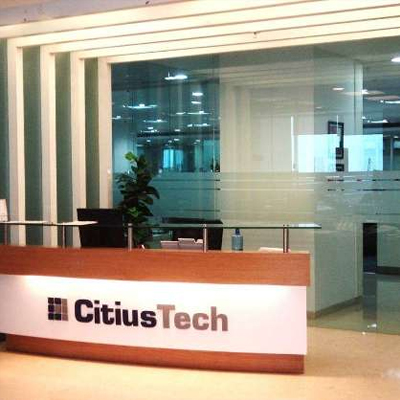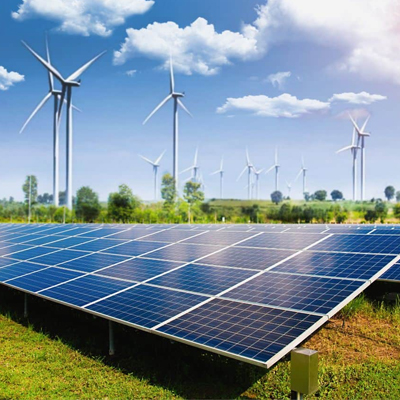Redefining Peace: The Unseen Link Between Environmental and Social Well-being

Yashashivi Mukesh, Chief Executive Officer, Project 100
An Incomplete Idea of Social Peace
The traditional understanding of peace often revolves around the absence of war or direct violence. However, true peace encompasses more than just the absence of conflict; it is about the nurturing conditions where all individuals can reach their full potential. However, there is a fundamental issue that is usually excluded from the discourse of peace: ‘the interconnected cycle of planetary life’ that defines our quality of life.
"Project 100 envisions a regenerative future, where small shifts toward Social and Environmental Peace (SEP) contribute to a harmonious coexistence. Embracing regenerative development is not just a choice but a necessity for a smarter, sustainable, and equitable world."
Environmental Peace: A Core Component of Social Peace
No wealth or luxury matters if the air we breathe is poisonous, the water we drink is contaminated and the nature that soothes us is on fire. Environmental Peace goes beyond human-centric considerations, to emphasize the importance of our relationship with the environment and vice-versa. Environmental peace is a comprehensive concept that highlights the interconnectedness of all living beings and the natural systems that sustain life. In the modern context, where conflicts increasingly stem from disputes over natural resources, this approach is not only relevant but necessary. A healthy relationship with Earth is foundational for cultivating responsible, conscious individuals who contribute to a more inclusive and peaceful society.
A Structural Hell on Earth
‘Ending’ ecological degradation and ‘Preserving’ the environment is not the solution to climate change, because the structural foundations that perpetuate this are not addressed here. The last 200 years of industrial activity have been based upon a linear industrial system whose design is inherently degenerative. The essence of that industrial system is the cradle-to-grave manufacturing supply chain of take, make, use, lose: extract earth’s minerals, metals, biomass, and fossil fuels; manufacture them into products; sell those on to consumers who, probably sooner rather than later — will throw them away. This design is fundamentally flawed because it runs counter to the earth’s living world, which thrives by continually recycling life’s building blocks.
Reimagining Development
For the last couple of decades the world has been talking about the idea of ‘Sustainable development’ As per the UN, Sustainable Development ‘meets the needs of the present without compromising on the ability of the future generations to meet their own needs.’ In other terms, sustainable development is the idea of growth without any further degradation.
This approach could have yielded the desirable outcomes if the reality of our current world was any better. Given the current state of environmental degradation, to ensure future generations have the resources and ecology they deserve, we must move beyond the idea of sustainable development to the idea of regenerative development.
Regenerative Development: Beyond Sustainability
Regenerative development is an innovative and nature-centric development approach that aims to restore and renew resources, ecosystems, and communities. This economic system is designed to actively improve the health of our planet and its inhabitants. It focuses on principles like restoring natural capital, enhancing well-being, and creating circular, symbiotic relationships within the environment. This model actively replenishes resources, leading to improved ecological health, economic prosperity, and social equity.
A Smarter Future with Hope
Ecological degradation is not a luxury concern for our society to leave on one side until we are rich enough to give it our attention. Rather than wait for growth to clean it up, because it won’t — it is far smarter to create society and economies that are regenerative by design, restoring and renewing the local-to-global cycles of life on which human well-being depends.
Project 100: Spearheading a Vision for a Regenerative Future
Project 100, a nonprofit organization based in New Delhi, looks at this design of regenerative economy as the foundational principle for building a world with Social and Environmental Peace (SEP). Project 100 is a network of influential and impactful leaders from across the world working together toward social and environmental peace for all. As its tagline “Global Network for Global Impact” suggests, this vision involves engaging world leaders from across various sectors to foster a collective commitment to this radically transformative future.
The Power of Small & Incremental Change: 1 Degree Shifts
Every person, from common citizens to policymakers to CEOs of big companies, genuinely wants to do what's right and make a positive impact. The tough part is that we've all gotten used to certain ways of doing things, which makes the change challenging. At Project 100, we believe that change starts with small and incremental 1-degree shifts. For this, we work with the leaders and organizations that have huge resources at their disposal or influence the macro level working on the global systems with their decision-making. We convene, engage, and influence these stakeholders towards the larger vision of SEP.
The journey into industry
Yashashvi Mukesh serves as the CEO of Project 100, a global network of influential leaders. The organization works toward the vision of fostering regenerative global development through international commerce and diplomacy, with a specific focus on Africa and
Southeast Asia. Under Yashashvi's leadership, Project 100 has been spearheading initiatives that address key global challenges, including climate education, climate change mitigation and adaptation, water, sanitation, and hygiene (WASH), skill development, education, and human wellbeing.
Yashashvi's journey in the field of social development began as a dedicated student of social work and development management. He embarked on his professional career by implementing the Swacch Bharat Mission in 1700 villages of eastern Uttar Pradesh,
showcasing a commitment to grassroots development.
Over the years, Yashashvi has played a pivotal role in designing impactful programs and ensuring their successful implementation. His diverse portfolio includes work in India and abroad, contributing to various sectors including climate tech, where he served as the Global
Head of Partnerships for a Silicon Valley-based startup.
Prior to his current role at Project 100, Yashashvi established an impact catalyst organization, collaborating with international organizations, corporate foundations, think tanks, UN bodies, and government agencies. This venture aimed to provide comprehensive services in program design, research, and assessment.
In addition to his responsibilities as CEO, Yashashvi actively contributes to several boards and advises high-impact social organizations operating across North America, Africa, and South Asia. His strategic guidance emphasizes climate and sustainability leadership,
reflecting his deep-rooted belief in equity and empowerment.
.png)







